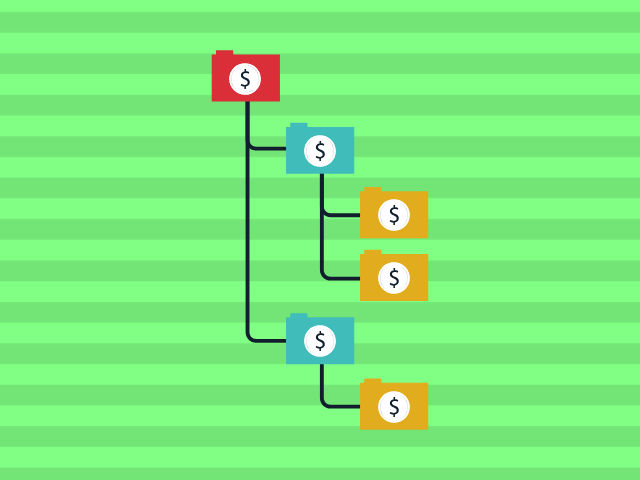
Have you just been surprised by a financial crisis unexpected and you don’t know what to do?
Whether it’s the loss of a job, medical bills, or an emergency home repair; an unexpected change in your financial situation can be incredibly stressful.
Bills still need to be paid, utilities need to stay active, and you need to put food on the table.
So how do you manage your money and deal with a financial crisis?
How to deal with a financial crisis.

1. Evaluate the situation.
Take a moment to sit down and carefully assess your situation. Panicking will not solve anything and will only create additional stress. (Click here if you want to learn how to manage stress)
Understandably, you probably have a million things running through your head and the last thing on your mind is to be calm.
However, the ability to carefully assess your situation will ensure that you make the right decisions.
First, determine what caused this financial crisis. Before you can look for ways to resolve the situation, you must understand the cause.
Is it a sudden loss of income? Expenses you can’t keep up with? With all the economic problems that the pandemic has brought, more and more people are having financial problems.
While each situation can create similar loads, your plan of attack will likely need to address the root of the problem to be effective in the long run.
2. Prioritize expenses.



Not all expenses are created equal. There are certain bills that need to be paid before others. Some of the most important items to put at the top of your list should be food and shelter.
Is it worth risking foreclosure to keep your cable account in good standing? Obviously not.
So carefully examine all your expenses and determine which ones are the most important. It is not worth paying for something that puts you in danger of not being able to pay for a need.
While it may not be much fun to cut some of the stuff you’re used to; you must do whatever it takes to prevent yourself from falling into an even deeper financial hole.
Look for ways to reduce or eliminate things completely. Think of those premium movie channels or satellite packages.
You may be able to survive without an expensive cell phone plan. Or maybe it’s best to do without your landline phone.
If you regularly go out to eat, consider reducing this expense or always eating at home. This won’t take long.
In short, you should learn how to save. And if you are totally committed to getting out of that financial crisis, you could save 50% of your income.
3. Negotiate with lenders.
If you have problems with credit cards, medical bills or even your mortgage; The first thing you should do is call your lender.
Unfortunately, people wait a long time before contacting their lenders. And by then, they won’t be willing to work with you anymore.
If you know money is running out and you might need help, call them before you fall behind.
Calling your credit card company may result in a lower interest rate. And in some cases, it can even cause a temporary delay in payments.
Contacting your mortgage company may lead to a restructuring of your loan.
And even when it comes to utilities like electric and gas, they often offer programs to help keep the lights on and make payments affordable if you find yourself in a tight spot.
Don’t wait for everything to get out of hand before you take action. Call the companies with which you have debts and explain your situation to them.
4. Find extra money.



Obviously you want to have some money set aside in an emergency fund to help pay for unexpected expenses. But this is not always possible.
So where do you turn when you’ve depleted your savings account?
You can try to get a loan or use credit cards, but this can make the problem worse.
While borrowing money can provide quick access to cash. You can also offer high interest rates and a new monthly payment.
If you experience financial difficulties for an extended period of time, you may find yourself in a downward spiral from which it is almost impossible to recover.
Another option might be to consult with friends and family. Nobody likes to ask for money, but a little help from a loved one might be all you need to get over the problem.
Of course, this can also put a strain on some relationships. Therefore, proceed with caution.
Finally, you may have some money available through investments or in retirement accounts.
Generally speaking, withdrawing a sum of money from your retirement accounts is a bad idea; since it can put your retirement security at risk. But it could also be enough to prevent you from incurring additional financial problems.
Conclusion.
Getting out of a financial crisis is not easy, but it is possible.
- Determine what caused it.
- Prioritize your expenses and reduce or eliminate some.
- Talk to your banks to find a solution before it’s too late.
- Find new sources of income.
We have all had to deal with a financial crisis. The important thing here is to focus and organize to get out of it 🙂
And remember, if you are really interested in creating your own business, you can read our book “How to create a company while working: Discover how to manage your time, manage your money and motivate yourself while creating a company and working for another” , where you will find all the information you need to found your own company, without having to leave your job.


About the Author: Andrés Gananci is an entrepreneur and adventurer with a passion for life who founded his first online business at just 17 years old. 12 years later, he is still traveling the world while working from home. You can contact him by mail [email protected]

